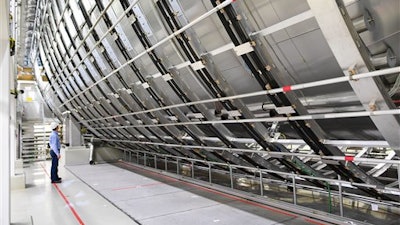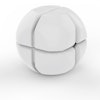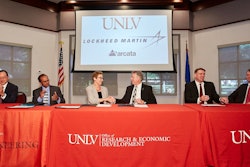
BERLIN (AP) — Scientists in Germany have flipped the switch on a 60 million euro ($66 million) machine designed to help determine the mass of the universe's lightest particle.
The Karlsruhe Tritium Neutrino experiment, or KATRIN, began tests Friday and is expected to begin making actual measurements next year.
Physicists at the Karlsruhe Institute of Technology hope the 200-metric-ton (220-ton) device will narrow down or even pinpoint the actual mass of neutrinos.
Doing so would help scientists to better understand the history of the universe. Neutrinos are sometimes referred to as "ghost particles" because they are so difficult to detect.
The institute says more than 150 scientists and engineers from five countries are participating in the experiment.






















